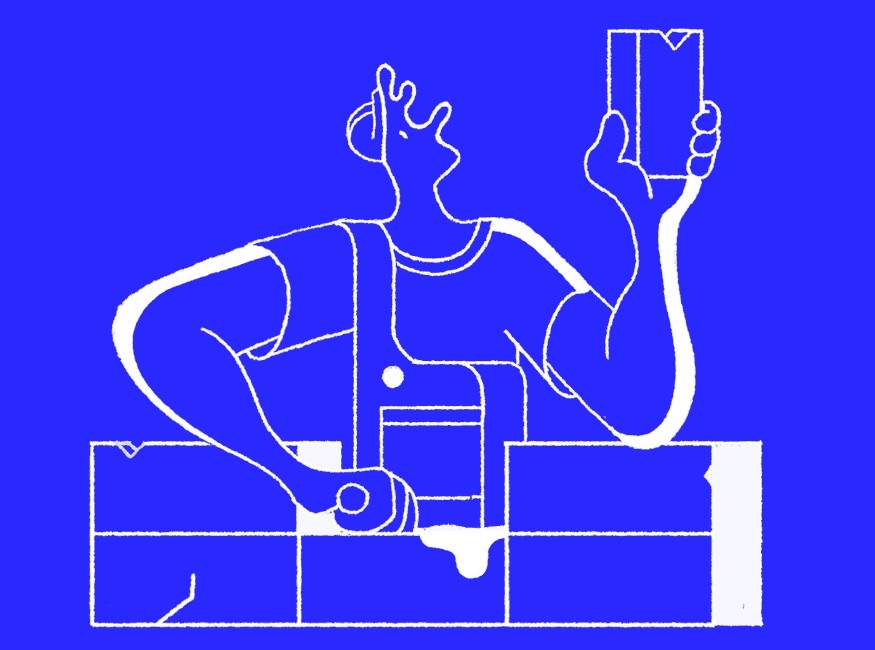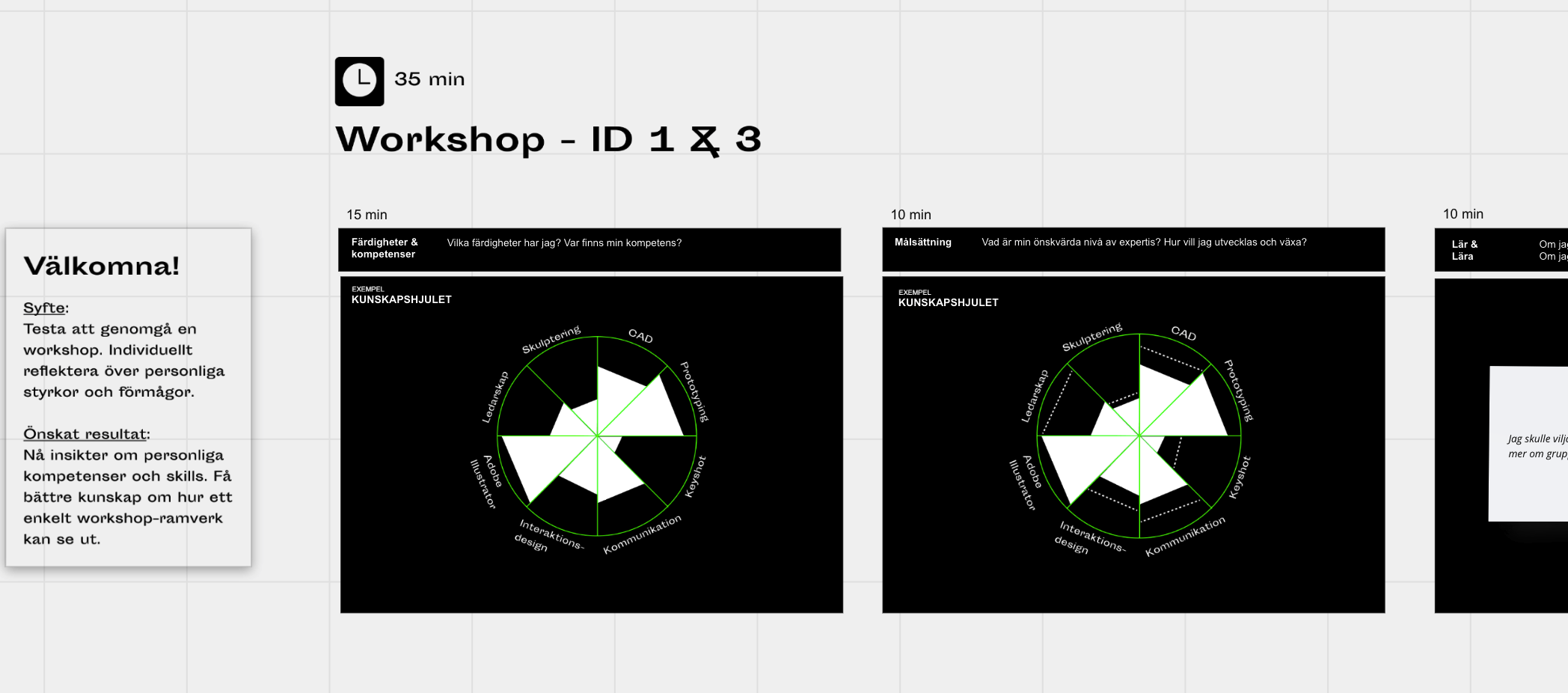Workshop about workshops
Konstfack · Posted Nov 12, 2020

T his autumn we have held a series of lectures and workshops with design students from Konstfack and KTH. Some topics we've touched upon were team development, communication, and collaboration in creative processes. Another request we got from Konstfack was to teach the students how to plan and run workshops. When jumping into preparation things got a bit confusing, how do you create a workshop about workshops?
For starters, we wanted to break down for the students what a workshop really is. In a simple and clear manner bone out all the question marks like: What is the purpose of a workshop? What is the role of a facilitator? How do you design the framework? etc. This may seem obvious to some, but from our experience workshops are “trending”, and are sometimes thrown together “just because”, as a consequence the sole purpose of the workshop may get lost. We think it’s important to workshop with intention because when you do it’s a very efficient way to co-create, make decisions, and move forward in the process, individually but maybe even more so, within a team.
⋯
So, while we’re at it: What is a workshop? Our definition is “A facilitated and structured part of a creative process that can vary in length, where the participants work towards an individual or common goal”. When creating a workshop framework it’s important to have the purpose and the desired outcome as fundamentals. Before you start designing the framework, find out what the participants expect to get out of it, and why the workshop is taking place. Don’t forget: who the participants are and where they are in their process.
A good way to structure a workshop is to divide it into sections: the beginning, middle, and end. The beginning sets the tone for the workshop, here it’s important to have the (digital or physical) room prepared, to welcome the group, present the agenda, and to create engagement. The middle part equals the “main content” of the workshop with tailored exercises with the intention to lead the group forward. Don’t underestimate the end. This is what you leave the group with - finish with a clear outcome/result and an idea of possible next steps.

What about the facilitator? The definition of facilitation is to “make (an action or process) easy or easier” - that sums it up pretty well. The facilitator’s main purpose is to relieve and make processes more efficient by supporting the participants of the workshop by leading them towards a common goal. The facilitator is responsible for designing a framework with a clear direction and smooth transitions, creating a room for the workshop, providing tools and a structure (without controlling the outcome), asking questions to drive the process forward, re-connecting to previous “said and done’s”, and last but not least: paying attention to the group’s needs and adjust thereafter. This requires flexibility, awareness, and empathy from the facilitator.
⋯
Halfway into the lecture, it was time to activate the students by jumping into a workshop framework we had prepared. This is where the meta started. We decided to tackle the confusing challenge (to workshop about workshops) by connecting the “backstage” preparation and structure with how it really looks like when a workshop is being acted out “on stage”. We walked through the framework step by step while connecting back to the theory that was given in the presentation.
The purpose of this workshop was for the students to try out a simple workshop format, get a glimpse of process design, and to reflect on their own strengths and skills. The desired outcome was to reach insights about their skillset and how that can be used in a workshop setting, together with gained knowledge about how to design a simple workshop framework.

⋯
Now when we’ve covered the basics, let’s talk about the value of workshops. Why do all the work? Following are the benefits we’ve experienced from running workshops with intention:
— An energy boost in the process
— Increased co-creation
— Tangible seeds (ideas, sketches, discussions, etc) that can grow into something bigger in the future
— Alignment within the team
Workshops are flexible in their format and can be used in all parts of the creative process: when exploring, ideating, making decisions, defining an idea or concept further, etc. What is your intention?
Let’s workshop!